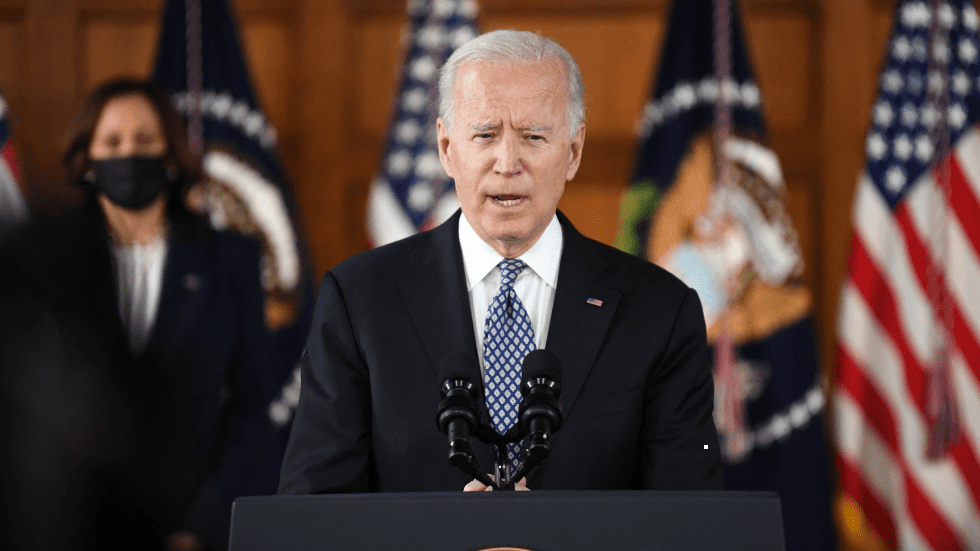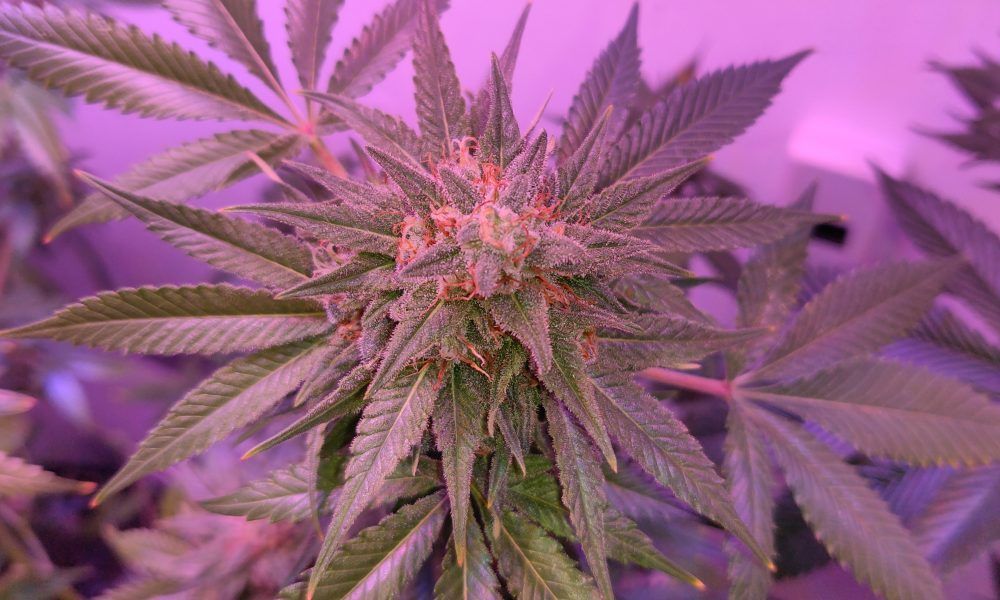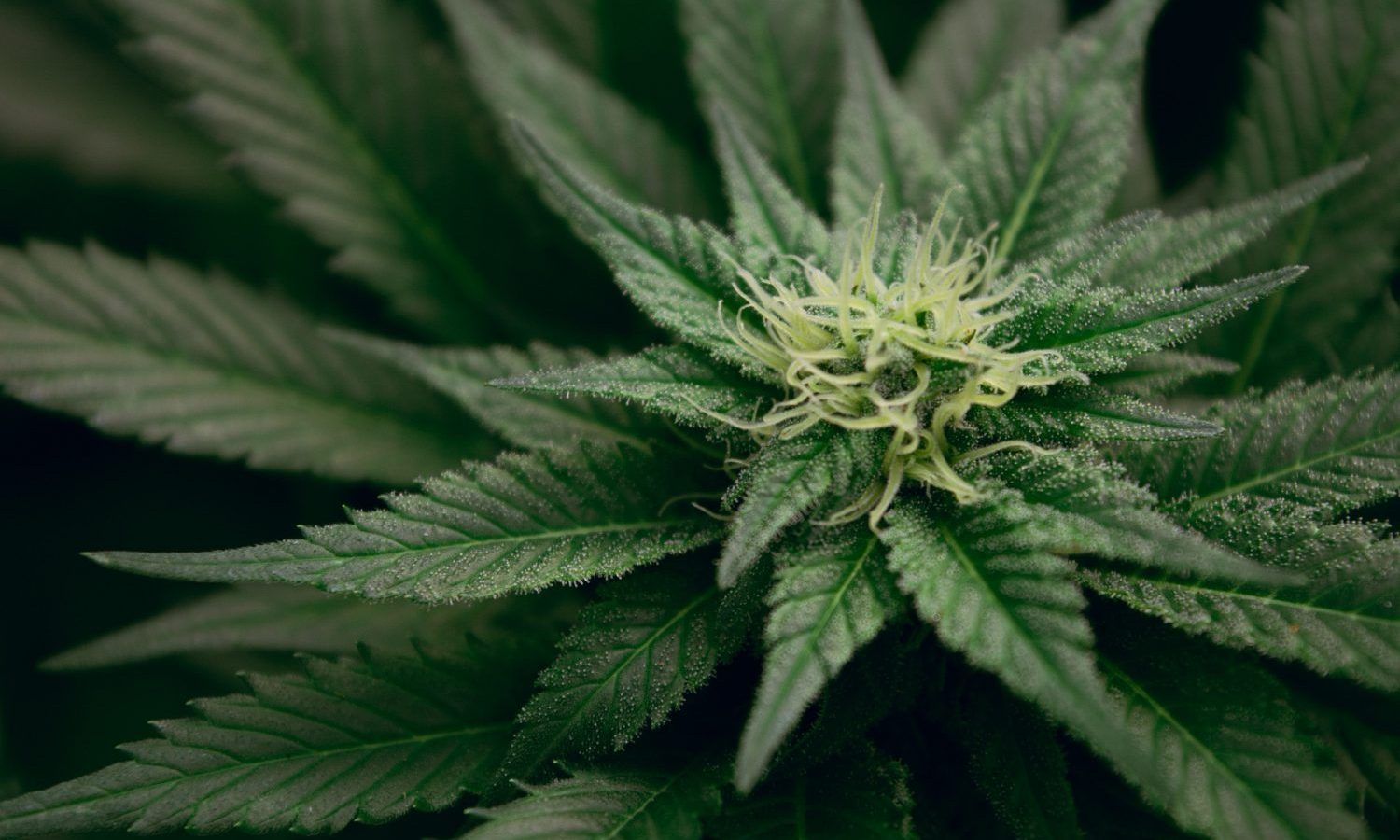How convenient.

President Joe Biden could theoretically end the policy of
firing White House staff over prior marijuana use himself, Press Secretary Jen Psaki said on Wednesday, but that’s not happening as long as cannabis is federally illegal.
During a press briefing, Psaki was asked why the president would allow multiple people to be terminated for admitting to using marijuana in the past as part of their background check process, especially given that Vice President Kamala Harris joked about her own cannabis consumption during her 2020 presidential run.
“Let me first say that what we tried to do as an administration was work with the security service who actually makes these determinations about suitability for serving in government in the past,” the press secretary replied. “I served in the Obama-Biden administration, the rules were actually far more stringent.”
“So that isn’t about anyone’s personal point of view—it’s about working through the process, the history and modernizing and taking steps to address the fact that marijuana is legal in a number of states across the country,” Psaki added. “It is still illegal federally.”
She also said that some of the five people who were asked to resign because they were honest about using cannabis in the past also had “other security issues that were raised,” though she did not offer specifics.
“That’s an unfortunate conclusion, of course,” she said. “But what we tried to do is enable additional members of the team who would not have been able to continue serving in past administrations to continue serving by updating our policy in coordination with the security service.”
That policy is reported to involve
granting waivers to workers who’ve consumed marijuana previously, but it didn’t prevent the recently reported terminations. What’s more, The Daily Beast reported that “dozens” of staff have been punished in some form over cannabis, which also included suspensions and requirements to enter a remote work program.
In a follow up question, Psaki was pressed on whether Biden could “unilaterally” stop people from being fired solely because of prior cannabis use. She responded that “I think if marijuana was federally legal, that might be a different circumstance, but I don’t think I have any more on this for you.”
In other words, it seems like it’s going to be incumbent upon Congress to end cannabis prohibition in order for the administration to more holistically revise its employment policy with respect to marijuana.
The news of the firings has elicited bipartisan pushback, with Rep. David Joyce (R-OH)
sending a letter to Biden on Monday condemning the actions and urging him to rehire those who were terminated just because they used to consume cannabis.
“Simply put, in a nation where the truth is considered malleable, we need to demonstrate to our young public servants that telling the truth is an honorable trait, not one to be punished,” he wrote. “I respectfully request that your administration discontinue punishment of staff for being honest about their prior cannabis use and reinstate otherwise qualified individuals to their posts.”
A separate letter from multiple lawmakers is expected to be delivered to the White House this week, seeking clarification on the administration’s marijuana employment policy.
Rep. Earl Blumenauer (D-OR), a founding member of the CCC who is leading that letter, told Marijuana Moment last week that “we still have a very uneven response” to marijuana use in the federal government and he considered the administration’s actions “antiquated” and inconsistent with the state-level reform movement.
It’s not clear at this point whether forthcoming congressional legalization legislation would remove marijuana as a negative criteria in federal employment decisions, however, as a bill that the House passed last year maintained that
cannabis could still be included in drug testing programs for federal workers.
Biden
personally opposes adult-use legalization but has backed more modest reforms such as legalizing for medical use, expunging prior cannabis records, rescheduling marijuana and allowing states to set their own policies.
Outside of the White House, the Office of Personnel Management said in a recent memo distributed to federal agencies that admitting to
past marijuana use should not automatically disqualify people from being employed in the federal government.
And another article regarding this:
A coalition of 30 members of Congress sent a letter to President Joe Biden on Thursday that criticizes the administration for
terminating or otherwise punishing multiple White House staffers who admitted to past marijuana use.
The lawmakers are asking for clarification on the employment policy and urging that prior cannabis consumption no longer be used as a justification to disqualify people from serving in the federal government—especially since Vice President Kamala Harris and at least one one other Cabinet member are
on record about their own marijuana use experiences.
Rep. Earl Blumenauer (D-OR), co-chair of the Congressional Cannabis Caucus, led the letter, which states that the lawmakers were “dismayed to learn that several White House staffers were reportedly suspended, put on probation, or asked to resign after honestly disclosing past cannabis use.”
“The American people are demanding a change to punitive and harsh cannabis laws that have always been unequally applied,” the letter states, adding that the employment policies “have been applied in inconsistent and unfair ways” given that past presidents, as well as Harris and Transportation Sec. Pete Buttigieg, have admitted to using marijuana in their youth “without consequences.”
“Those in the upper ranks of your administration won’t face consequences for their cannabis use, and nor should they, but the same standard should be applied across the administration,” it continues. “Repercussions for cannabis use have always been unequal and those with the most power have always faced the fewest consequences. We ask that you don’t allow that pattern to continue within your administration.”
“While we work to deschedule cannabis legislatively, your administration should act within its power to stop legitimizing unfair cannabis laws. You have previously expressed your commitment to decriminalizing cannabis in acknowledgement that a cannabis conviction or even the stigma of cannabis use can ruin lives and prevent people from voting, gaining employment, and contributing to society. You can meet this moment and help end our failed punitive policy of cannabis prohibition.”
Reps. Don Beyer (D-VA), Mondaire Jones (D-NY), Jared Huffman (D-CA) and Barbara Lee (D-CA) led the letter alongside Blumenauer. Rules Committee Chairman James McGovern (D-MA) and Small Business Committee Chairwoman Nydia Velazquez (D-NY) also signed on.
Other signatories include Reps. Ro Khanna (D-CA), Eleanor Holmes Norton (D-DC), Ilhan Omar (D-MN), Ayanna Pressley (D-MA), Pramila Jayapal (D-WA), Rashida Tlaib (D-MI) and Steve Cohen (D-TN).
“The American people are demanding a change to punitive and harsh cannabis laws that have always been unequally applied,” the lawmakers wrote, noting the growing number of states that are enacting legalization policies.
The letter comes days after Rep. David Joyce (R-OH)
sent a similar message to the presidentcondemning news of the marijuana-related firings for people who disclosed their history with cannabis on a federal form that’s required as part of the background check process.
“Simply put, in a nation where the truth is considered malleable, we need to demonstrate to our young public servants that telling the truth is an honorable trait, not one to be punished,” the congressman wrote. “I respectfully request that your administration discontinue punishment of staff for being honest about their prior cannabis use and reinstate otherwise qualified individuals to their posts.”
White House Press Secretary Jen Psaki
addressed the controversy on Wednesday, saying during a press briefing that while Biden could theoretically end the policy of firing staff over prior marijuana use himself, that’s not happening as long as cannabis is federally illegal.
“Let me first say that what we tried to do as an administration was work with the security service who actually makes these determinations about suitability for serving in government in the past,” she said. “I served in the Obama-Biden administration, the rules were actually far more stringent.”
While Psaki tried to make the case that the current policy under this administration is more lenient and involves
granting waivers to workers who’ve consumed marijuana previously, that didn’t prevent the recently reported terminations.
In a follow up question, Psaki was pressed on whether Biden could “unilaterally” stop people from being fired solely because of prior cannabis use. She responded that “I think if marijuana was federally legal, that might be a different circumstance, but I don’t think I have any more on this for you.”
In other words, it seems like it’s going to be incumbent upon Congress to end cannabis prohibition in order for the administration to more holistically revise its employment policy with respect to marijuana.
Blumenauer told Marijuana Moment last week that “we still have a very uneven response” to marijuana use in the federal government and he considered the administration’s actions “antiquated” and inconsistent with the state-level reform movement.
It’s not clear at this point whether forthcoming congressional legalization legislation would remove marijuana as a negative criteria in federal employment decisions, however, as a bill that the House passed last year maintained that
cannabis could still be included in drug testing programs for federal workers.
Biden
personally opposes adult-use legalization but has backed more modest reforms such as legalizing for medical use, expunging prior cannabis records, rescheduling marijuana and allowing states to set their own policies.
Outside of the White House, the Office of Personnel Management said in a recent memo distributed to federal agencies that admitting to
past marijuana use should not automatically disqualify people from being employed in the federal government.
Read the new letter to Biden on the marijuana-related White House firings by following title link and scrolling to the bottom of the article.






